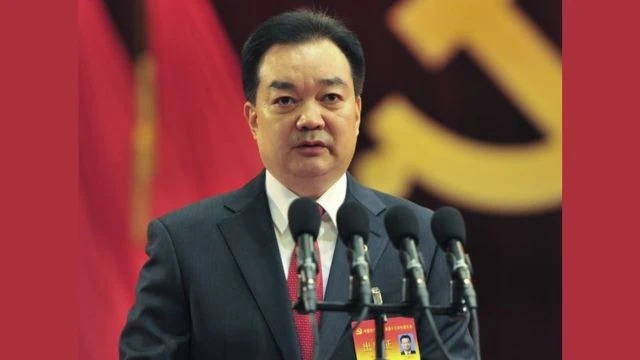On August 22, U.S. Secretary of State Anthony Blinken announced sanctions against Chinese officials responsible for the forcible separation from their parents and indoctrination of one million Tibetan children, which had also been denounced by the United Nations.
Blinken announced that, “The State Department is taking steps to impose visa restrictions under the authority of Section 212(a)(3)(C) of the Immigration and Nationality Act on People’s Republic of China (PRC) officials for their involvement in the forcible assimilation of more than one million Tibetan children in government-run boarding schools. These coercive policies seek to eliminate Tibet’s distinct linguistic, cultural, and religious traditions among younger generations of Tibetans. We urge PRC authorities to end the coercion of Tibetan children into government-run boarding schools and to cease repressive assimilation policies, both in Tibet and throughout other parts of the PRC. We will continue to work with our allies and partners to highlight these actions and promote accountability.”
Just as it is depriving Tibetan children of their national and religious identity, China is trying to deprive Tibet of something not less essential for it to survive, its name.
In 2021, “Bitter Winter” reported that, as one of his first acts, the newly appointed CCP Secretary of Tibet, Wang Junzheng, the former “Butcher of Xinjiang” and the Chinese official most sanctioned throughout the world for his human rights violations (by the U.S., the U.K., Canada, and the European Union), asked that “Xizang” rather than “Tibet” should be used as the name of the so-called “autonomous region” in official documents. We would take the liberty of referring readers to our 2021 article for an in-depth analysis of why the claim that “Xizang” is the ancient name of Tibet is fraudulent and in fact the word “Tibet” predated “Xizang” by some 1,000 years.
After two years, both Wang Junzheng and his bosses in Beijing are taking notice that the campaign to impose the use of “Xizang” is not working. Even CCP publications do not always use the new name, and the officially proscribed word “Tibet” continues to appear. But the CCP is not giving up.
On August 14–16, the 7th International Symposium on Tibetology was organized in Beijing. The United Front released on August 16 a long statement about the Symposium through its official WeChat account.
The United Front clearly explains that the matter is not linguistic but political. It writes that “in a large number of contexts where the word ‘Tibet’ is used to represent Xizang abroad, its extended meaning includes not only Xizang, but also Tibetan-speaking prefectures and counties in Qinghai, Sichuan, Gansu, and Yunnan provinces. And this geographical scope highly overlaps with the so-called ‘Greater Tibet’ that the 14th Dalai Lama clique has long advocated for.”
The United Front denies that the campaign to change the name to Xizang has been a failure. “In recent years, it claims, if you have been to Xizang and paid attention to the English translation of ‘Xizang’ in the streets and alleys of many cities, you will find that the proportion of ‘Xizang’ [over ‘Tibet’] is increasing significantly. The use of ‘Xizang’ is also being widely adopted in China’s foreign reporting on Tibet,” by which the document means mostly the propaganda outlet “Global Times.”
The United Front quotes Wang Linping, a professor at the School of Marxism at Harbin Engineering University, and the author of several propaganda works claiming that Tibet is part of China. According to the statement, Wang said at the Beijing symposium that “the wrong concept of ‘Tibet’ has been around for a long time” and that “the use of ‘Tibet’ has seriously misled the international community.” He attributed the invention of the word “Tibet” to “British colonialist Charles Alfred Bell,” forgetting that the Italian traveler Marco Polo used it in the 13th century and before him variations of “Tibet” are attested in Turkish sources since the 9th century.
According to the United Front statement, which summarizes approvingly Wang Linping’s lecture at the symposium, “to get rid of the conceptual traps of the West and separatist forces in Xizang-related discourse and establish China’s dominant position in the international discourse system related to the area, it is urgent to impose in English the word ‘Xizang,’ which can accurately express China’s position. Recently, the Dalai clique has criticized the use of ‘Xizang’ in English, which just confirms that using this word is an effective tool to destroy the key point of the discourse of the separatist forces.”
Again according to the United Front document, Lian Xiangmin, deputy director-general of the China Tibetology Research Center, stated that, “Some people in the West may have different opinions, but China handles Xizang-related affairs in accordance with the law. Whether they can accept it or not is their own problem.”









































